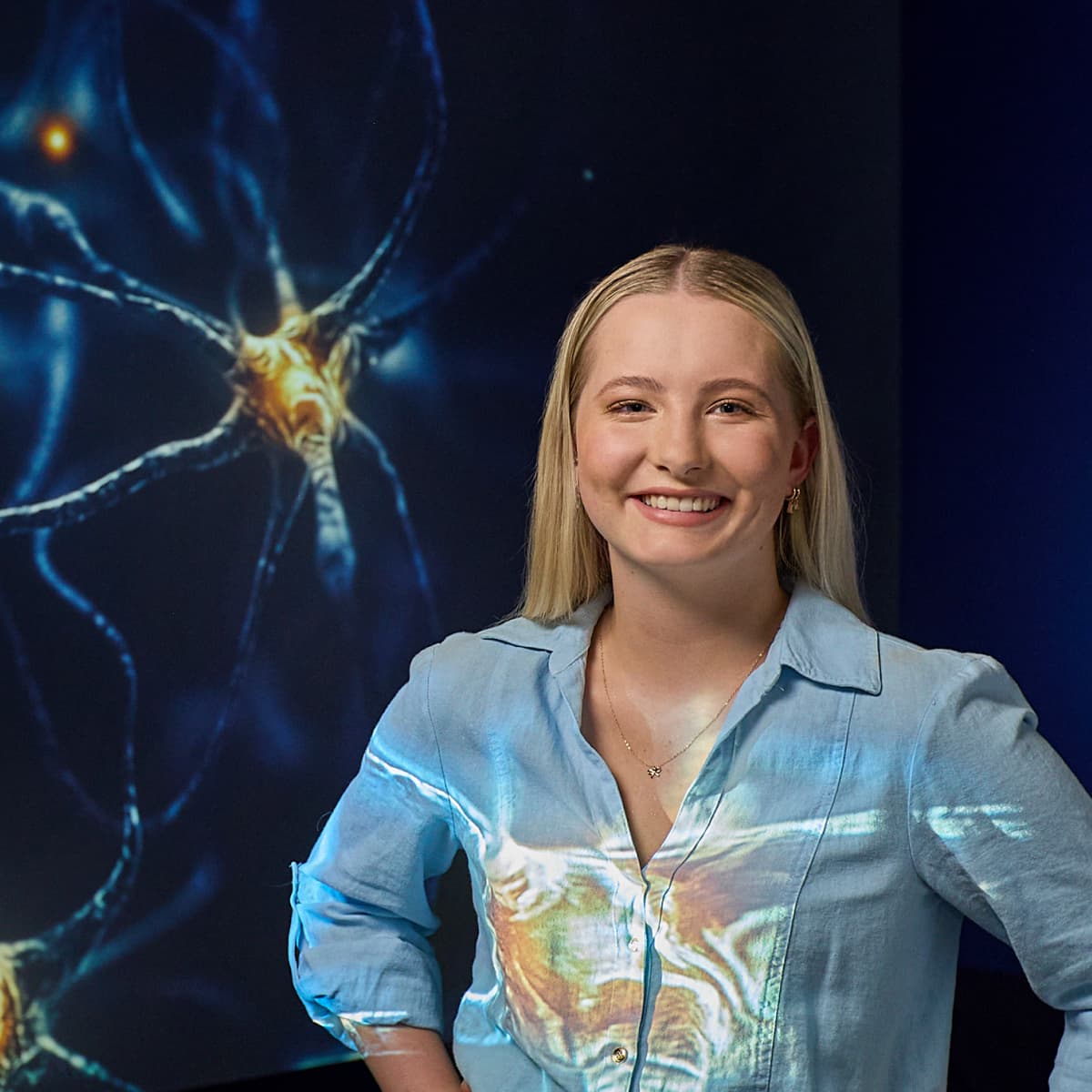Inherent Requirements
ECU's inherent requirements form part of the entry requirements of courses, especially for teacher education, allied health and nursing studies.
In some ECU courses, especially those offered by the Schools of Nursing & Midwifery, Medical & Health Sciences and Education, students must meet what's called Inherent Requirements.
These are the essential components of a course or unit that demonstrate your abilities, knowledge and skills to achieve the core learning outcomes of those courses or units.
Inherent Requirements also form part of the entry requirements of a course. They must be met by all students.
For example, if you're applying for a course that leads to practice as a nurse and/or midwife, you should read the inherent requirements carefully to ensure you're able to meet them.
Inherent Requirements help to ensure the integrity of professions like teaching or healthcare. They also ensure that the integrity of a course is maintained and preserves the university's learning, assessment and accreditation processes.
Making reasonable adjustments
As well as helping you make an informed decision about your capacity to study certain ECU courses, Inherent Requirements also help us to consider whether you might need some reasonable adjustments to assist you with study.
Reasonable adjustments are measures or actions taken to assist you in participating in education and training on the same basis as other students.
For example, if you have a disability, medical condition or caring responsibility, ECU's Equity, Diversity and Disability team can consider the information you provide and determine the types of reasonable adjustments that can be made.
The types of measures needed will vary, depending on the specific disability, or needs you have, but could include alternative assessment (including exam) conditions, aids, resources and equipment, note-taking or AUSLAN interpreting.
To discuss reasonable adjustments for a particular course, please contact ECU's Equity, Diversity and Disability Service.
ECU's Inherent Requirement Categories
-
Verbal Communication
Conveying messages, knowledge, ideas, feelings or dialogue through speech in the English language.
Non-Verbal Communication
Communication other than speech that conveys meaning and provides additional information to the person or audience with whom you are communicating. Non-verbal communication includes but is not limited to gestures and facial expressions, as well as body posture, stance, touch, eye movements, eye contact and distance from the person or audience with whom you are communicating.
Literacy and Written Communication
Ability to produce English text to a standard that provides clear and coherent communication which is appropriate to the task.
-
Cognitive Skills
The mental action or process of acquiring knowledge and understanding through one's thoughts, experience and senses. It relates to a number of acquired skills that reflect an individual's ability to think including:
- verbal abilities;
- spatial abilities;
- concentration and memory;
- perception, processing (includes information and feedback) and reasoning;
- analysing, synthesising and applying knowledge;
- planning and organising; and
- flexible thinking and problem solving.
Numeracy
The ability to understand, interpret and correctly apply numerical concepts in a range of contexts.
-
Visual Sensory Ability
The extent to which a person can see including:
- accuracy of vision;
- eye movement;
- focus;
- eye teaming;
- peripheral awareness; and
- eye/hand coordination.
Auditory and Aural Ability
The extent to which a person can hear, use their sense of hearing, and respond to auditory or aural cues.
[In the performance disciplines this may also encompass the ability to identify pitches, intervals, melody, chords, rhythms, solfèges, and other basic elements of music, solely by hearing.]
Tactile Sensory Ability
The sense of touch including:
- light touch;
- deep pressure;
- texture;
- temperature;
- vibration; and
- pain.
-
Gross Motor Skills
The use of large muscle groups that coordinate body movements for activities such as walking, lifting, pushing, pulling and maintaining balance.
Fine Motor Skills
The ability to undertake precise coordinated movements of the hands for activities such as writing, playing music and/or manipulating small objects.
-
Sustainable Performance
The ability to undertake one or multiple tasks to a set standard over a pre-determined period of time. This could include physical performance such as standing for a period of time, or cognitive (mental) performance such as concentrating for a particular length of time.
Behavioural Adaptability
The ability to work constructively, either independently or in a group setting, in a diverse and changing academic environment, whilst maintaining conduct that is acceptable and appropriate to the situation or environment.
Relational and Interpersonal Skills
Personal skills required to interact appropriately with others with the aim of building and maintaining healthy, productive relationships to produce the required outcomes.
Ethical
Acting in ways consistent with the recognised values of society and avoiding activities that do harm. At ECU this includes adherence to the Student Code of Conduct.
Legal
Acting in ways consistent with:
- the University (rules, code of conduct, policies and procedures),
- the Standards of practice as required by the professional body which accredits or recognises the course; and
- the law.
Inherent Requirements - school statements
If you intend to enrol in an Initial Teacher Education course, an Allied Health course or a Pre-registration Nursing and/or Midwifery course, you should carefully examine the relevant school's inherent requirement statements.
Acknowledgements
ECU has referenced the work of Western Sydney University in the development of its Inherent Requirements Framework.
Important
![]()
This content has been reproduced and modified based on materials published by the University of Western Sydney: Inherent Requirements © University of Western Sydney is licensed under a Creative Commons Attribution-Non Commercial Share Alike 4.0 International licence.
Acknowledgement: Johnson, A., Allan,T., Phillips,K., Azzopardi,T., Dickson,C., Goldsmith,M & Hengstberger-Sims, C. (2011). Inherent Requirements of Nursing Education (IRONE), University of Western Sydney (UWS) School of Nursing & Midwifery and UWS Student Equity & Disability Services, used to form the UWS Inherent Requirements.
All subsequent dealings with this work pursuant to the Creative Commons Attribution-Non Commercial Share Alike 4.0 International licence must contain the same form of attribution as above and acknowledge Edith Cowan University.
The Important Things
Things you should know about if you're thinking about studying here.
Course Entry
There's more than one admission pathway into an ECU course. It depends on what you've studied already, or your work or life experience.
Fees & Scholarships
Course tuition fees can change, but we can give you an estimate of your costs. If you're eligible, a scholarship or student loan can help too.
Applying
Applying for a course is a fairly simple process, especially if you have scanned copies of qualifications, your resume or other paperwork, ready to upload.
ECU Experience
Starting a course is an exciting and sometimes daunting time, so we make a massive effort to ensure you get all the support you need to have a positive experience.



